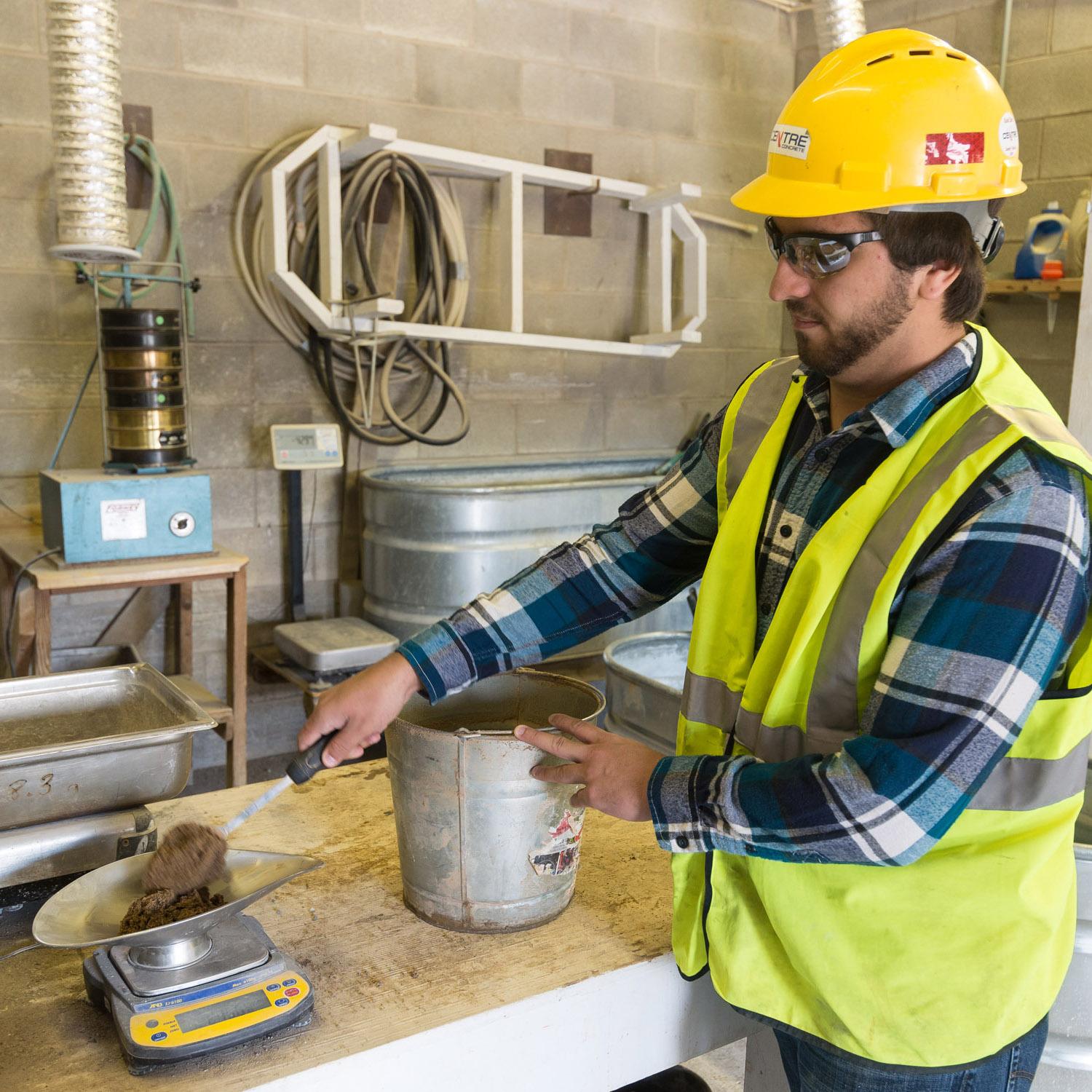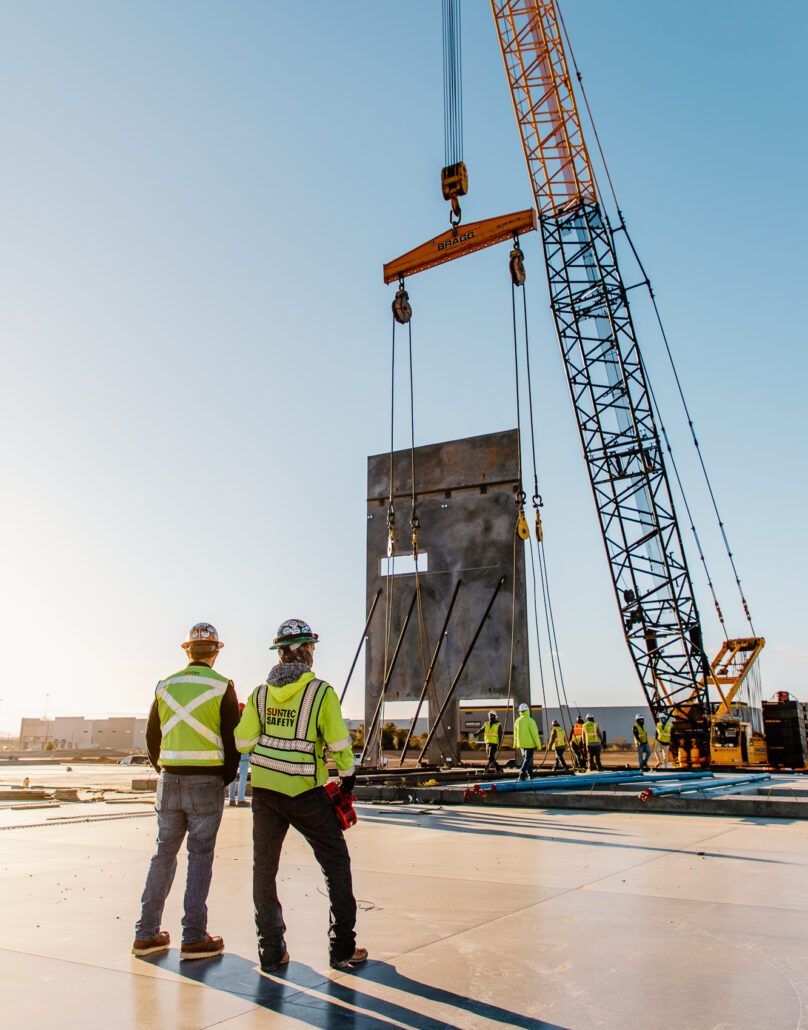Why Builders Prefer West Coast General Engineering industrial concrete Rancho Cucamonga for High-Stress Projects
Why Builders Prefer West Coast General Engineering industrial concrete Rancho Cucamonga for High-Stress Projects
Blog Article
The Crucial Function of Concrete Structure in Structural Stability and Durability
When it concerns constructing a residential property, the structure is much more vital than you could believe. Concrete foundations provide unparalleled strength and sturdiness, ensuring your structure can stand up to various environmental challenges. Without a solid base, you run the risk of prospective issues like moving or fracturing, which can jeopardize security and value. Recognizing the subtleties of concrete structures could be the key to protecting your financial investment for several years to find. So, what should you think about next?
Understanding the Value of Concrete Foundations
Concrete foundations are important to the overall stability of any structure, as they offer the essential assistance needed to hold up against various loads and ecological conditions. When you consider constructing a home or an industrial space, the foundation is the initial thing you must think about. It works as a barrier against wetness, shielding your home from water damage. A well-placed concrete foundation also avoids settling and shifting, which can result in splits in walls and floorings. You'll desire to ensure that the structure is properly designed and reinforced, as this affects the durability of your building. Additionally, a solid structure can improve energy effectiveness by lowering air leakages. Keep in mind, ignoring the value of a concrete foundation can result in costly repair work down the line. Investing in a quality structure upfront is crucial for the honesty and durability of your framework.
Advantages of Concrete Structures for Structural Honesty
While many aspects add to a building's architectural stability, concrete structures offer unparalleled longevity and toughness. You'll value that concrete can withstand extreme climate condition, resisting both moisture and temperature level variations. This durability indicates your structure is much less most likely to experience fracturing or shifting with time, which can compromise its safety.Additionally, concrete's intrinsic weight gives a strong base, stopping motion during all-natural events like earthquakes or floodings. When you select a concrete foundation, you're also selecting reduced maintenance; unlike wood, it will not rot or attract parasites, saving you time and money in repairs.Moreover, concrete's fire resistance supplies included safety and security, guaranteeing your framework can endure high temperature levels without considerable damage. Generally, investing in a concrete foundation suggests you're focusing on the long-term stability and stability of your structure, making it a sensible option for any construction project.
Usual Kinds Of Concrete Foundations
When it pertains to constructing structures, recognizing the common kinds of concrete structures can assist you make informed choices for your task. One of the most widespread types include slab-on-grade, crawl space, and complete cellar foundations.A slab-on-grade foundation is an easy, economical choice, where a thick concrete slab is put directly on the ground. This kind works well in cozy environments, as it lessens heat loss.Crawl space foundations raise the home slightly over ground, enabling air flow and accessibility to plumbing and electrical systems. This layout can assist stop dampness issues.Full cellar foundations provide added living or storage space while supplying outstanding architectural support. They require even more excavation and are normally used in cooler climates to stop frost heave.
Aspects to Think About When Creating a Concrete Structure

Finest Practices for Setting Up Concrete Foundations
When you're mounting a concrete foundation, proper site prep work is essential to ensure stability (WCGE commercial concrete). You'll likewise require to understand support methods to boost stamina and resilience. Finally, do not overlook the treating procedure, as it plays a basic function in achieving a solid structure
Site Prep Work Value
It may appear simple, appropriate site prep work is essential for assuring a strong and resilient concrete foundation. Begin by clearing the area of any kind of debris, vegetation, or natural material that might jeopardize the foundation's integrity. Next off, assess the soil kind and compaction; you could require to excavate or add products to create a secure base. Level the ground to assure even weight distribution and prevent settling issues later on. Mounting correct drainage systems is additionally essential to stop water accumulation, which can deteriorate the structure over time. Mark out the foundation's measurements accurately to direct the pouring process. By adhering to these steps, you'll set the phase for a successful concrete foundation that stands the test of time.
Support Techniques Clarified
As soon as the site is appropriately prepared, the next step in guaranteeing a strong concrete foundation entails carrying out reliable reinforcement methods. You need to begin by utilizing steel rebar, which provides tensile strength and aids prevent fracturing. Lay the rebar in a grid pattern, making certain it's elevated making use of spacers to maintain proper protection. In addition, think about using wire mesh for additional assistance, particularly in locations based on hefty lots. Do not fail to remember to connect the rebar crossways securely with cord. For larger structures, fiber support can enhance sturdiness, minimizing the risk of shrinking fractures. Always follow neighborhood building regulations and standards to ensure conformity. By applying these reinforcement methods, you'll substantially improve your foundation's stamina and durability, laying a strong foundation for your structure.
Healing Refine Fundamentals
To guarantee your concrete foundation remedies appropriately, it is essential to keep ample dampness and temperature level problems quickly after pouring. Start by covering the surface area with a damp burlap or plastic sheeting to maintain moisture. This maintains the concrete hydrated, avoiding cracks and making sure strength. You must likewise check the temperature level; perfect healing problems are between 50 ° F and 90 ° F. If it's also warm, mist the surface area routinely to avoid quick dissipation. For winter, consider making use of protecting blankets to maintain heat. Aim for a curing duration of a minimum of seven days, as this is crucial for ideal toughness development. By adhering to these best techniques, you'll improve your structure's toughness and durability, guaranteeing structural stability for several years to come.
Maintenance of Concrete Structures for Longevity
To keep your concrete structure solid and enduring, routine examinations are important. You need to additionally assure effective drainage solutions are in place to avoid water damages. If you spot any type of splits, addressing them promptly will save you from bigger problems down the line.

Routine Inspections and Assessments
While regular examinations and analyses could seem like a task, they're crucial for keeping the honesty of your concrete structure. By consistently looking for fractures, changes, or indicators of wear, you can catch prospective concerns before they intensify into expensive repair services. Look for any water merging around the structure or unusual settling, as these can signal underlying issues. It's additionally sensible to monitor any changes in your house's structure, like doors that stick or windows that do not open smoothly. Maintaining a document of your examinations assists track modifications with time, permitting aggressive upkeep. Inevitably, these evaluations guarantee your structure stays stable, sustaining the longevity and safety of your entire framework. Don't forget this vital element of homeownership!
Efficient Water Drainage Solutions
Regular evaluations can disclose problems like drainage issues that may endanger your concrete foundation's security. To prevent water buildup, guarantee your seamless gutters and downspouts direct water far from the foundation. Installing French drains can properly reroute surface and groundwater, decreasing stress on your structure walls. Furthermore, rating the soil around your home aids assure that water streams away, helpful hints instead of pooling near your foundation.Consider utilizing sump pumps in areas vulnerable to flooding, as they proactively remove excess water. Frequently look for blockages in water drainage systems and clear them promptly. You'll safeguard your foundation's integrity and longevity by taking these aggressive steps. Remember, effective drainage options are important for maintaining a strong, resilient concrete foundation.
Trigger Split Repair Works
When you observe cracks in your concrete structure, resolving them without delay is vital for preserving its longevity. Tiny fractures can promptly develop into bigger problems, endangering the structural integrity of your home. Frequently check your structure for indicators of damages, such as horizontal or vertical fractures. If you spot any, do not wait-- repair them quickly. You can make use of epoxy injections or concrete patching substances, which are efficient for sealing splits. Always follow the manufacturer's guidelines and think about getting in touch with an expert for considerable damages. Keep in mind, prompt repair services not just boost your structure's resilience however additionally save you cash in the long run by preventing more substantial repairs down the line. Keep proactive, and your structure will certainly continue to be strong and safe.
Resolving Usual Concerns With Concrete Structures
Concrete structures can face various concerns over time, making it critical to recognize and resolve them promptly. Among one of the most usual problems is breaking, which can take place as a result of temperature changes or settling dirt. If you observe splits, it's necessary to evaluate their dimension and depth; little fractures can frequently be secured, while larger ones might require expert evaluation.Water invasion is an additional major worry. Excess moisture can lead to mold and mildew development and structural deterioration. Warranty proper drainage around your foundation to alleviate this risk. Additionally, search for indications of changing or bowing wall surfaces, as this can indicate underlying problems with your structure's stability.Regular inspections are fundamental to catch these issues early. If you find any kind of concerning indications, do not think twice to get in touch with a foundation expert. By staying proactive, you can preserve the integrity and he has a good point long life of your concrete foundation, assuring your ashler slate home stays risk-free and safe.
Frequently Asked Concerns
How Does Dirt Type Influence Concrete Structure Performance?
Soil type significantly affects concrete foundation efficiency. If you have actually obtained large clay, for example, it can create changing and splitting. Sandy dirt might cause working out. Recognizing your soil aids assure a steady structure.
Can Concrete Foundations Be Fixed if Damaged?
Yes, you can repair damaged concrete foundations. Depending on the extent of the damages, methods like epoxy shot or slab jacking can bring back stability. It's best to speak with a professional for reliable remedies.
What Is the Regular Life-span of a Concrete Foundation?
A concrete structure commonly lasts 30 to 100 years, depending on variables like soil problems, climate, and maintenance. You'll desire to watch on it to guarantee it continues to be in great form throughout its lifespan.
Are There Option Materials to Concrete for Foundations?
Yes, there are choices to concrete for structures, like steel, wood, or even recycled products. Each choice has distinct advantages and disadvantages, so you should consider your job's certain demands when selecting the appropriate material.
Just How Does Environment Effect Concrete Structure Sturdiness?
Climate significantly impacts concrete structure durability (West Coast General Engineering Concrete). Extreme temperatures, moisture, and freeze-thaw cycles can weaken the material, causing cracks and architectural issues. You need to think about neighborhood environment conditions when preparing your structure to assure long-term performance
Report this page